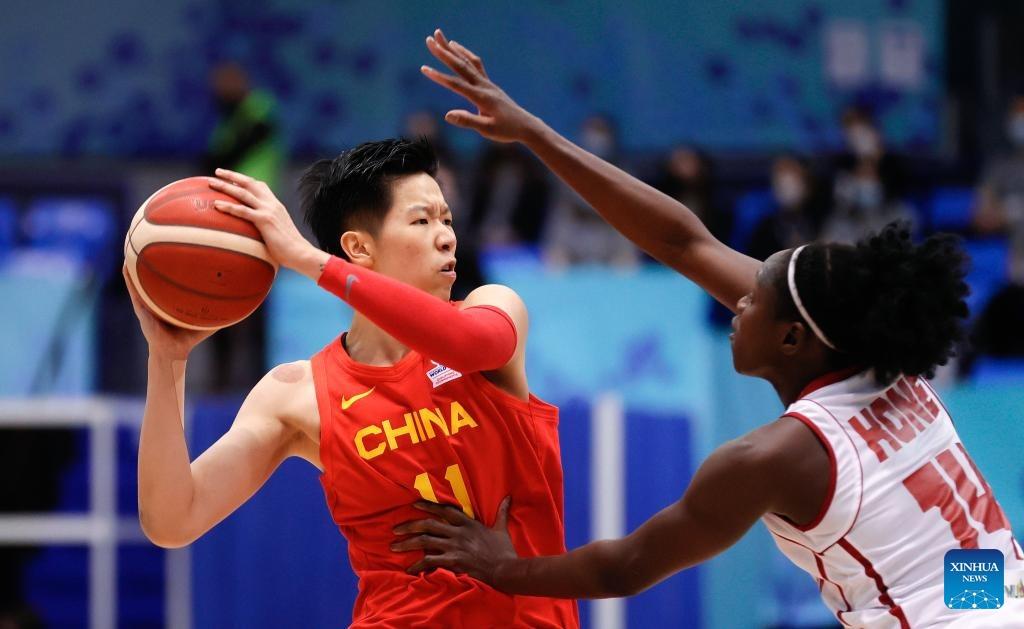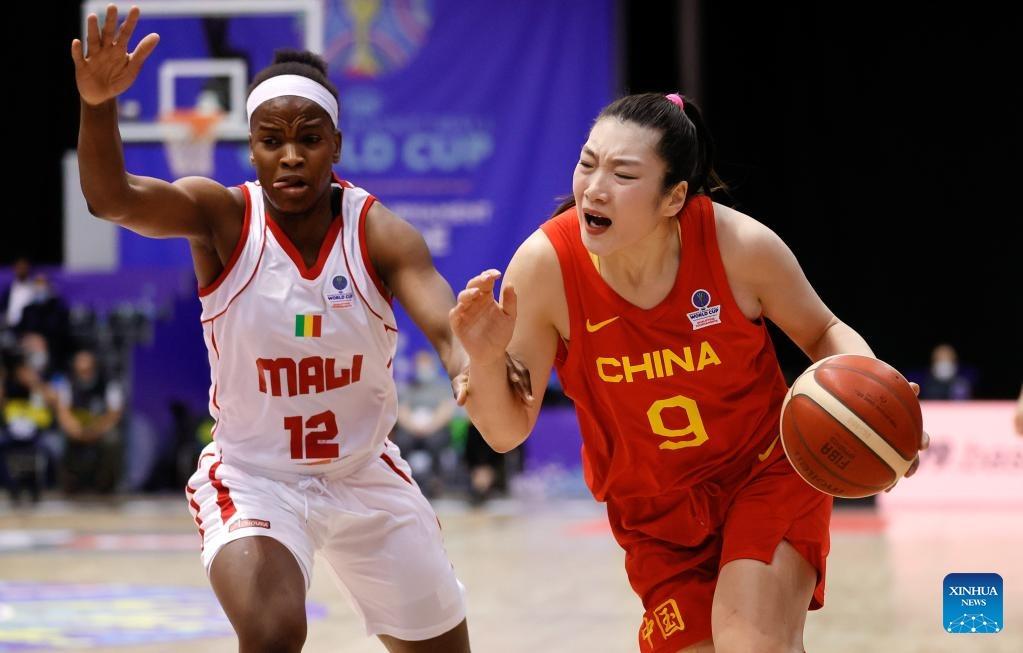 Huang Sijing (left) of China competes during the FIBA Women's World Cup qualifying basketball match between China and Mali in Belgrade, Serbia on Feb 11, 2022. (PHOTO / XINHUA)
Huang Sijing (left) of China competes during the FIBA Women's World Cup qualifying basketball match between China and Mali in Belgrade, Serbia on Feb 11, 2022. (PHOTO / XINHUA)
SYDNEY - A confident China returns to Sydney, Australia determined to end their 12-year title drought at the FIBA Women's Asia Cup, which starts on Monday.
World No 2 China kick off their campaign as favorites in the eight-team flagship continental competition, which culminates with the final on July 2.
There is an added carrot for participating teams with the top four finishers advancing to the 2024 Paris Olympic qualifying tournament.
Australia hosts the Asia Cup for the first time, and the event's 30th edition comes hot on the heels of Sydney staging a memorable FIBA Women's World Cup late last year.
Buoyed by young talent and feverish crowd support, China enjoyed a stellar run at the World Cup where they finished runners-up, equaling their best record at the quadrennial tournament
Buoyed by young talent and feverish crowd support, China enjoyed a stellar run at the World Cup where they finished runners-up, equaling their best record at the quadrennial tournament.
Dynamic guard Li Meng, who plays for the Washington Mystics in the WNBA, was a standout with an average of 16 points per game, and she will line up at the Asia Cup alongside 23-year-old Han Xu, who also enjoyed a strong World Cup campaign.
There is much anticipation that China's momentum can continue at the Asia Cup, a tournament they long dominated with 10 titles from 14 editions between 1986 and 2011.
ALSO READ: Vessel for unity
But China have endured a barren run since then, repeatedly falling short, including at the 2021 event in Amman, Jordan, where they lost to Japan in a gripping final.
They will be without stars Huang Sijing and Li Yueru, and five straight defeats on their recent tour of Europe was cause for concern.
But China remain the team to beat in Group A, which also features New Zealand, Lebanon and South Korea - winners of a record 12 Asia Cup titles.
South Korea will likely provide China with the toughest test in the group stage as they seek a first title since 2007. They will rely on their offensive firepower, particularly from three-point range where Kang Lee-seul is particularly proficient.
The 29-year-old was outstanding at last year's World Cup with an average of 17.2 points, and she shot almost 40 percent from beyond the arc.
ALSO READ: HK's international dragon boat races return after 4-year hiatus
South Korea will also be buoyed by the presence of center Park Ji-su, who has long been the heart and soul of her team.
Group B also has five-time defending champions Japan, who beat China 78-73 in a tense final two years ago.
The Tokyo Olympics silver medalists have had a stranglehold of the event for the past decade, but arrive in Sydney on the back of a lackluster ninth-placed finish at the World Cup.
 Li Meng (right) of China breaks through during the FIBA Women's World Cup qualifying basketball match between China and Mali in Belgrade, Serbia on Feb 11, 2022. (PHOTO / XINHUA)
Li Meng (right) of China breaks through during the FIBA Women's World Cup qualifying basketball match between China and Mali in Belgrade, Serbia on Feb 11, 2022. (PHOTO / XINHUA)
Japan will be without mainstays Ramu Tokashiki and Rui Machida, but there is growing excitement over 21-year-old Aika Hirashita, who enjoyed a breakout at last year's World Cup.
With 2021 Asia Cup MVP Himawari Akaho and Maki Takada in the line-up, Japan's trademark gritty defense looks a tough nut to crack, and they once again loom as China's biggest obstacle to the title.
Japan will face an early challenge against hosts Australia, who finished third at last year's World Cup on home soil.
Playing in front of their passionate fans lifted Australia - known as the Opals - to great heights, but they have a number of top players unavailable due to injuries and WNBA commitments.
ALSO READ: Dragon Boat World Cup held in China's Three Gorges
Australia will rely on a new generation of emerging players, including sharpshooter Shyla Heal and an athletic Anneli Maley, who won a gold medal at the recent FIBA 3x3 Asia Cup in Singapore.
Basketball powerhouses Australia have never won an Asia Cup, but have had podium finishes in the past three events.
Australia's opening game will be against the Philippines, boosted by the addition of exciting 21-year-old guard Vanessa de Jesus, who plays for Duke University in the United States.
Chinese Taipei are rated as dark horses in what is a formidable Group B.
The top finisher in each group will advance to the semifinals, while the second and third-placed teams square off on June 30 in knockout matches.
South Korea and New Zealand launch the tournament on June 26, while China play Lebanon later that day.


